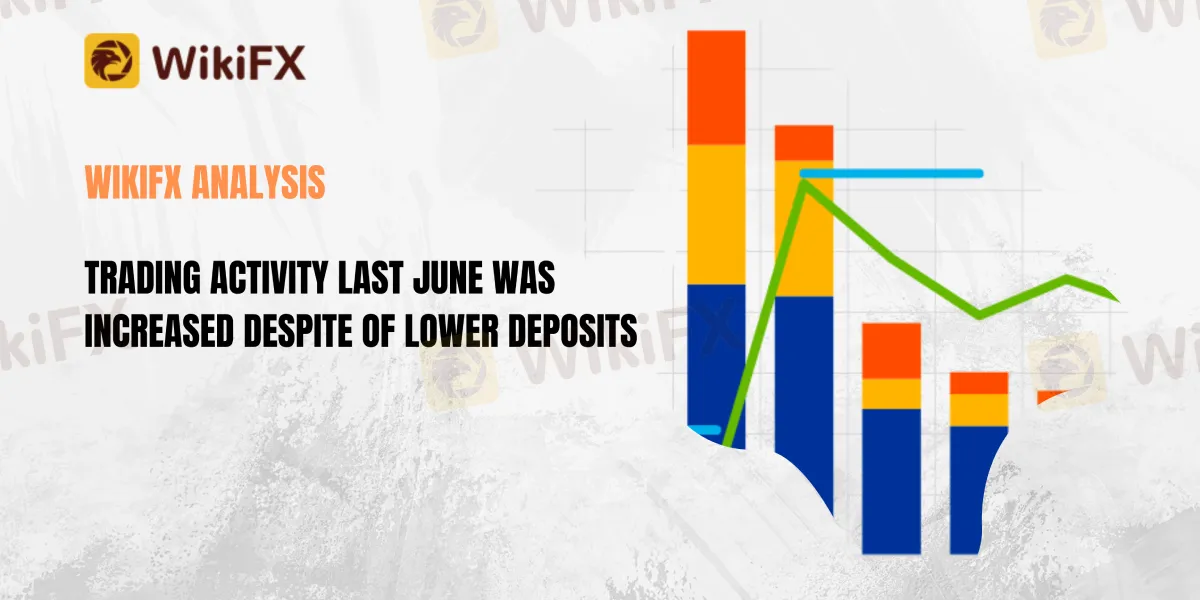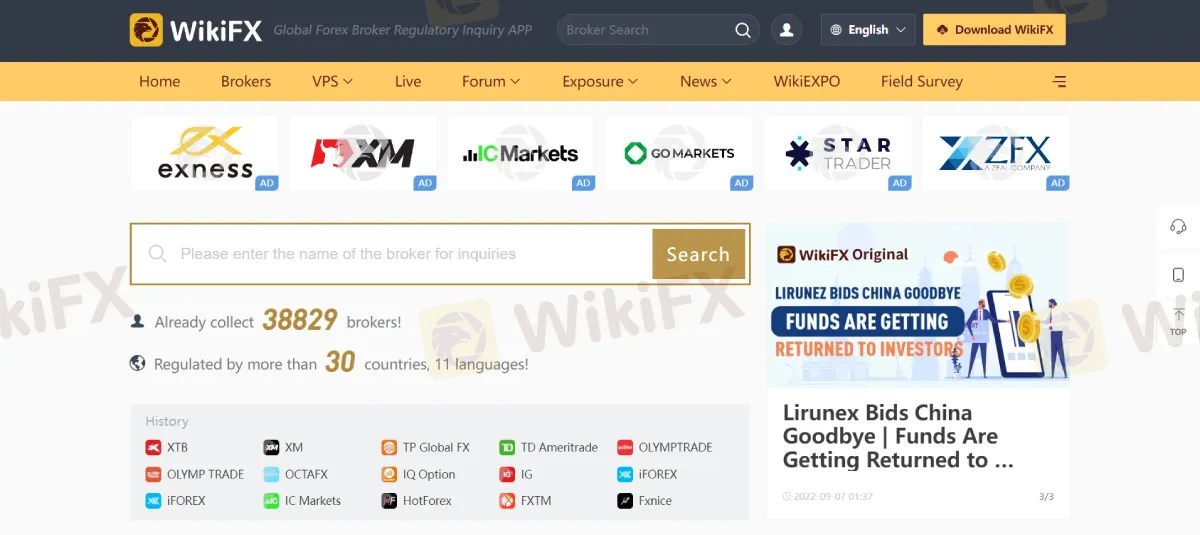简体中文
繁體中文
English
Pусский
日本語
ภาษาไทย
Tiếng Việt
Bahasa Indonesia
Español
हिन्दी
Filippiiniläinen
Français
Deutsch
Português
Türkçe
한국어
العربية
WikiFX Analysis: Trading Activity Last June Was Increased Despite Of Lower Deposits
Abstract:According to the most recent trend data studied by WikiFX, retail investors elected not to deposit extra funds in their accounts in June. Nonetheless, they performed more transactions than the prior month.

Retail dealers put in less money.
The average transaction volume rose.
We witnessed an increase in the size of deposits in May. The overall average monthly deposit increased to $14,630, setting a new record in our records for total deposits. This trend did not continue long, as the average value of the total monthly deposit fell to $11,504 in June, the lowest level since September 2021.
The average total monthly withdrawals decreased in June as well. While the overall average monthly deposit increased to $8,146 from $5,221 in May, it fell to $7,507 in June, the second-lowest level this year.
Retail investors made more trades.
Despite fewer capital inflows and outflows, retail traders continued to trade, although on a lesser scale. The average number of transactions done by one trader increased to 296.5 in June, up from 285.1 the previous month. In addition to approaching the 300 transaction mark, the amount has climbed significantly over the same period last year. The average number of transactions in July 2021 was 224.
What was noteworthy was that Kuwait topped the activity rankings for the second month in a row. This country's merchants were followed by Turkish traders. China, which is normally the most active, came in fourth this time with 304 deals per dealer.
In the next months, this will be examined for industrial activity. Stay tuned for further industry-related studies, or contact us personally if you have any questions.
About WikiFX
Wikifx is a platform for searching worldwide company financial information. Its primary duty is to search for basic information, regulatory licenses, credit assessment, platform identification, and other services for the participating foreign currency trading firms.

Wikifx has created a big data solution that unifies data gathering, data screening, data aggregation, data modeling, and data productization using public data from government agencies, sophisticated sniffer systems, and scientific computer algorithms. Wikifx may then assess the supervision and risk levels of the associated organizations across several dimensions and give matching security solutions to individual users, corporate users, and government agencies.
Stay tuned for the latest forex market news.
Download the WikiFX App from the App Store or Google Play Store.

Disclaimer:
The views in this article only represent the author's personal views, and do not constitute investment advice on this platform. This platform does not guarantee the accuracy, completeness and timeliness of the information in the article, and will not be liable for any loss caused by the use of or reliance on the information in the article.
Read more

Top 10 Trading Indicators Every Forex Trader Should Know
Master the top 10 Forex trading indicators to analyze real-time Forex quotes, trends, and market signals. Learn strategies to boost accuracy and avoid mistakes.

Geopolitical Events: What They Are & Their Impact?
You've heard many times that geopolitical events have a significant impact on the Forex market. But do you know what geopolitical events are and how they affect the FX market? Let us learn about it today.

Why Do You Feel Scared During Trade Execution?
Trade execution is a pivotal moment for traders. It is when analysis turns into action, and potential profits or losses become reality. However, for many traders, this moment is accompanied by fear. Why does this happen, and how can you address it?

WikiEXPO Global Expert Interview: Simone Martin—— Exploring Financial Regulation Change
In the midst of financial innovation and regulation, WikiGlobal, the organizer of WikiEXPO, stays abreast of industry trends and conducts a series of insightful and distinctive interviews on pivotal topics. We are delighted to have the privilege of inviting Simone Martin for an in-depth conversation this time.
WikiFX Broker
Latest News
Geopolitical Events: What They Are & Their Impact?
Top 10 Trading Indicators Every Forex Trader Should Know
ASIC Sues Binance Australia Derivatives for Misclassifying Retail Clients
Why Do You Feel Scared During Trade Execution?
Revolut Leads UK Neobanks in the Digital Banking Revolution
Fusion Markets: Safe Choice or Scam to Avoid?
North Korean Hackers Steal $1.3bn in Cryptocurrency in 2024
Currency Calculator


